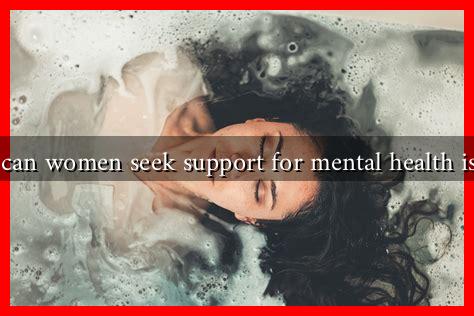-
Table of Contents
How Can Women Seek Support for Mental Health Issues?
Mental health is a critical aspect of overall well-being, yet many women face unique challenges that can exacerbate mental health issues. From societal pressures to hormonal changes, women often find themselves in need of support. Fortunately, there are numerous avenues available for women seeking help. This article explores various methods women can utilize to seek support for mental health issues, backed by research and real-life examples.
Understanding the Importance of Mental Health Support
According to the World Health Organization (WHO), mental health disorders affect one in four people globally, with women being disproportionately affected. Factors such as gender-based violence, discrimination, and caregiving responsibilities can contribute to higher rates of anxiety and depression among women. Seeking support is crucial for recovery and maintaining mental well-being.
Types of Support Available
Women can access a variety of support systems tailored to their needs. Here are some effective options:
- Professional Therapy: Engaging with a licensed therapist or counselor can provide a safe space to explore feelings and develop coping strategies. Cognitive Behavioral Therapy (CBT) and Dialectical Behavior Therapy (DBT) are particularly effective for women dealing with anxiety and depression.
- Support Groups: Joining a support group can help women connect with others facing similar challenges. Organizations like the National Alliance on Mental Illness (NAMI) offer resources and local support groups.
- Online Resources: Websites such as MentalHealth.gov provide valuable information and resources for women seeking help. Online therapy platforms like BetterHelp and Talkspace also offer convenient access to mental health professionals.
- Hotlines: Crisis hotlines can provide immediate support. The National Suicide Prevention Lifeline (1-800-273-TALK) is available 24/7 for those in crisis.
- Community Programs: Many local organizations offer workshops, seminars, and wellness programs aimed at improving mental health. These can be great opportunities for women to learn and connect.
Case Studies: Real-Life Examples of Seeking Support
Understanding how other women have navigated their mental health journeys can be inspiring. Here are two case studies:
Case Study 1: Sarah’s Journey with Anxiety
Sarah, a 32-year-old mother of two, struggled with anxiety after the birth of her second child. Feeling overwhelmed, she sought help through a local support group for new mothers. Sharing her experiences with others helped her realize she was not alone. With the guidance of a therapist, she learned coping strategies that significantly improved her mental health.
Case Study 2: Maria’s Battle with Depression
Maria, a 45-year-old professional, faced severe depression after losing her job. Initially hesitant to seek help, she eventually reached out to a therapist and joined an online support group. The combination of professional guidance and peer support helped her regain her confidence and find new employment.
Barriers to Seeking Support
Despite the available resources, many women face barriers when seeking mental health support:
- Stigma: The stigma surrounding mental health can deter women from seeking help. Many fear judgment from peers or family.
- Financial Constraints: The cost of therapy can be prohibitive, especially for women who are single parents or caregivers.
- Lack of Awareness: Some women may not be aware of the resources available to them or may not recognize the signs of mental health issues.
Conclusion: Taking the First Step Towards Healing
Seeking support for mental health issues is a vital step for women facing challenges. By utilizing professional therapy, support groups, online resources, and community programs, women can find the help they need. While barriers such as stigma and financial constraints exist, awareness and education can empower women to take charge of their mental health. Remember, reaching out for help is a sign of strength, and there are numerous resources available to support you on your journey to mental well-being.
For more information on mental health resources, visit NAMI or WomensHealth.gov.


